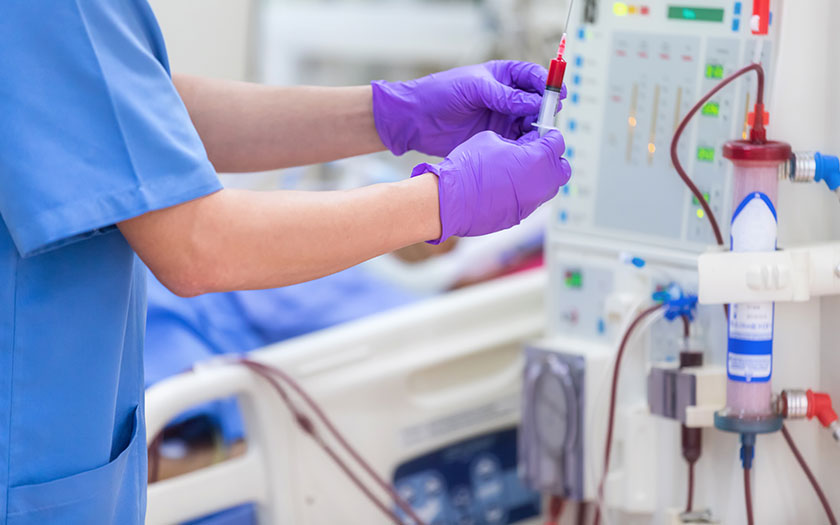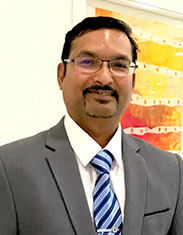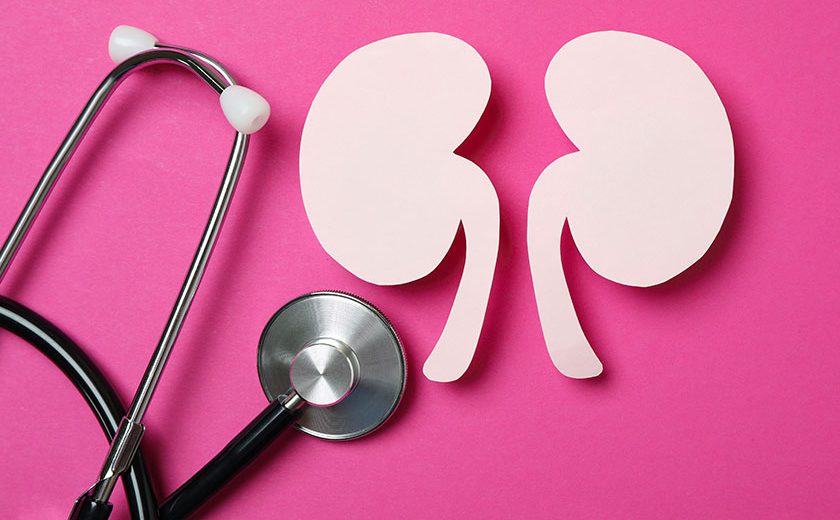Kidney diseases may present as either acute, abrupt kidney dysfunction called Acute Kidney Injury (AKI) and more commonly as chronic progressive kidney dysfunction called Chronic kidney disease (CKD).
There are multiple causative factors for both presentations, namely infective cause like urosepsis (simple and complicated urinary tract infections) and systemic sepsis. Noninfective causes for kidney disease are obstructive uropathy, kidney stones (urolithiasis), medications & nephrotoxins related, glomerulonephritis and polycystic kidney disease. Natural Health talked to an expert, Dr. T Kalaiselvam A/L Thevandran, Consultant Internal Medicine Physician & Nephrologist, Columbia Asia Hospital, in hope to unravel the facts behind this dangerous disease. Here’s what he had to say.
NH: Is kidney disease prevalent in Malaysia, and why?
Dr Kalai: Yes, studies have demonstrated a rising prevalence of CKD in Malaysia over the last 7 years, from 9.07 to 15.48%. The key reasons for this rising trend are the increasing prevalence of non-communicable diseases, changes in population demographics and unhealthy lifestyles..
NH: Can kidney diseases be prevented, and if so, how?
Dr Kalai: Yes, it can be prevented. Because high blood pressure and diabetes are the most common causes of kidney failure, many of the prevention tips are related to managing these two conditions as well as observing a healthy lifestyle and avoiding nephrotoxins. These are kidney disease prevention tips listed briefly.
- Manage your blood sugar.
Diabetic nephropathy is a common complication of type 1 and type 2 diabetes. Over time, poorly controlled diabetes can cause damage to blood vessel clusters in your kidneys that filter waste from your blood. This can lead to kidney damage and cause high blood pressure.
- Manage your blood pressure.
Hypertensive kidney disease is a medical condition referring to damage to the kidney due to chronic high blood pressure. Management approaches are mainly non-pharmacological and pharmacological (medications).
- Maintain a healthy weight.
Obesity can increase your risk for conditions associated with kidney failures, such as diabetes and high blood pressure.
- Eat a heart-healthy diet
A heart-healthy diet — one low in sugar and cholesterol and high in fibre, whole grains, and fruits and vegetables — helps prevent weight gain.
- Reduce salt intake

Eating too much salt is associated with high blood pressure and kidney disease. Usual salt intake is around 8-12g/day. Reduce salt as much as possible, at least 5-6 g/day. The majority of salt (80%) are ‘hidden’ (bread, stock cubes, ready meals, processed food, cereals, sauces). 1 teaspoon is about 5g salt. Cook using natural ingredients. Careful of salt replacement if you already had chronic kidney disease. Get a dietician to consult if necessary.
- Drink enough water
Dehydration reduces blood flow to your kidneys, which can damage them. Keep yourself well hydrated. Usual intake of 6-8 glasses of water or about 2L/ day may be sufficient for a healthy person.
- Limit alcohol
Chronic alcoholism leads to liver disease as well as kidney disease. Kidney damage occurs more slowly. Regular heavy drinking has been found to double the risk of chronic kidney disease, which does not go away over time. Consult your doctor if necessary..
- Don’t smoke
Smoking reduces blood flow to your kidneys. It damages kidney function in people with or without kidney disease. The study had demonstrated that stopping smoking was shown to help a person maintain kidney function.
- Limit over-the-counter pain medications and supplements

In high doses, nonsteroidal anti-inflammatory drugs (NSAIDs), such as aspirin, ibuprofen, and naproxen, reduce the amount of blood flow to your kidneys, which can harm them.
- Reduce stress
Reducing stress and anxiety can lower your blood pressure, which is good for your kidneys.
- Exercise regularly
Exercise, such as swimming, walking, and running, can help reduce stress, manage diabetes and high blood pressure, and maintain a healthy weight. Choose continuous activity such as walking, swimming, bicycling (indoors or out), skiing, aerobic dancing, or any other activities in which you need to move large muscle groups continuously. Low-level strengthening exercises may also be beneficial as part of your program.
If you think you might have kidney disease, it’s important to see your doctor for evaluation. Getting an early diagnosis and treatment can help slow the progression to kidney failure.
NH: What is lifelike for a person with kidney disease?
Dr Kalai: Many people with chronic kidney disease (CKD) can live long lives without being unduly affected by the condition. Although it’s not possible to repair the damage that has already happened to your kidneys, CKD will not necessarily get worse. CKD only reaches an advanced stage in a small proportion of people.
But even if your condition is mild, it’s important to take good care of yourself to help stop it from getting worse and reduce your risk of other health problems, such as cardiovascular disease.
NH: What is/are the treatments like for a kidney patient?
Dr Kalai: There are treatments for both types of kidney disease. Acute kidney injury (AKI) can be reversed. Chronic kidney disease (CKD) progression can be slowed with the right treatment.
In AKI, the problem is temporary. Your kidneys will start working again once the problem has been treated. Some examples of treatment are:
- Antibiotics for pyelonephritis/ systemic sepsis
- Transfusion for blood loss
- Corticosteroids for immune conditions/ Glomerulonephritis
- Intravenous fluids for dehydration
- Removal of an obstruction
If your kidneys don’t respond to treatment right away, hemodialysis can be done temporarily until they’re working again.
Progressive damage to your kidneys causes CKD and End-Stage Renal Disease (ESRD). Since it cannot be reversed, something else must take over the work of your kidneys. This treatment is called Renal Replacement Therapy (RRT). The options of RRT are:

- Hemodialysis. A dialysis machine can filter your blood. This can be performed at a dialysis centre or home but will require a partner.
- Peritoneal dialysis. The filtering occurs in your abdomen. This can be done at home. A self-care option with flexibility and freedom. Hygienic care and proper technique reduce the risk of infection.
- Kidney transplant. Best RRT option with dialysis free life. A donated kidney is surgically placed in your body. Needs anti rejection medications after kidney transplant and kidney donor availability is low at this moment.
NH: What is the cost of a kidney transplant here in Malaysia?
Dr Kalai: The cost of kidney transplant varies with performing centres. At present renal transplant is highly funded in the ministry of health hospital versus university-based and private medical centres. You may consult your nephrologist on this matter.
NH: When will a person need to undergo a kidney transplant?
Dr Kalai: You may get a kidney transplant when your kidneys are close to failure before you need to start dialysis. Or you may start dialysis while you wait for a kidney transplant. Kidney transplant surgery is considered safe and is usually very successful.
NH: How can family members help a kidney patient?
Dr Kalai: It’s a challenging task to show help and support to kidney patients when not knowing how to help them and what they need most for the inexperienced family members. Here are some ideas as to how family members can help a kidney patient:
- Take them to dialysis treatment.
Helping kidney patients get to their appointments on time and being there with them is one of the best ways to offer support. Dialysis treatment, particularly for the first time, can be overwhelming. Having a familiar face alongside them can help ease the fear and anxiety. Depending on their course of treatment, dialysis often lasts several hours and must be completed several times per week. Offer to drive them to and from their treatment, as well as sit with them during their treatment, can show them they are not alone.
- Consider becoming a living donor.
As a concerned and caring family member, they may consider becoming a living donor as an alternative to waiting on the long national transplant list for an organ from a deceased donor.
- Accompany kidney patients to support groups.
Sometimes, the best medicine for a person suffering from kidney disease is simply to be able to share their fears, stories, and feelings with others. Although family members are always willing to listen, kidney patients may find wanting to share their story and be around other people who share the same disease. Encourage them to attend a local support group. If it makes them feel more comfortable, offer to accompany them to a meeting. If he or she does not feel comfortable attending an in-person support group, the National Kidney Foundations offers peer mentors that are available to speak on the phone as well as an online community.
- Family members can prepare kidney disease-friendly meal for kidney patients
Another way to support a loved one that has kidney disease is to prepare meals that can help them manage the progression of their disease. Their physician will provide nutrition guidelines based on their individual needs, but here is a helpful list of common foods patients with kidney disease should eat and avoid.
- Family members can help with household chores.
Depending on the kidney patient stage of kidney disease, they may experience pain or fatigue, making even relatively minor tasks such as household chores more difficult. Help them save energy to focus on their health and treatment by offering to help. This can be as simple as vacuuming, doing dishes, or washing laundry.
Family members can do these chores when a kidney patient is away for dialysis treatment. Kidney patients upon returning from dialysis treatment would likely not burden with the stress of cleaning the house.
- Other Ways to Help
To better understand what kidney patients may be going through, family members can learn more about kidney disease by visiting the kidney care resource section to self-educate. Each kidney patient deals with the diagnosis of a chronic condition in their way, so family members should be patient and listen to patients needs so that they know how to best support the patient.
 Q & A with Dr. T Kalaiselvam A/L Thevandran, Consultant Internal Medicine Physician & Nephrologist, Columbia Asia Hospital
Q & A with Dr. T Kalaiselvam A/L Thevandran, Consultant Internal Medicine Physician & Nephrologist, Columbia Asia Hospital


